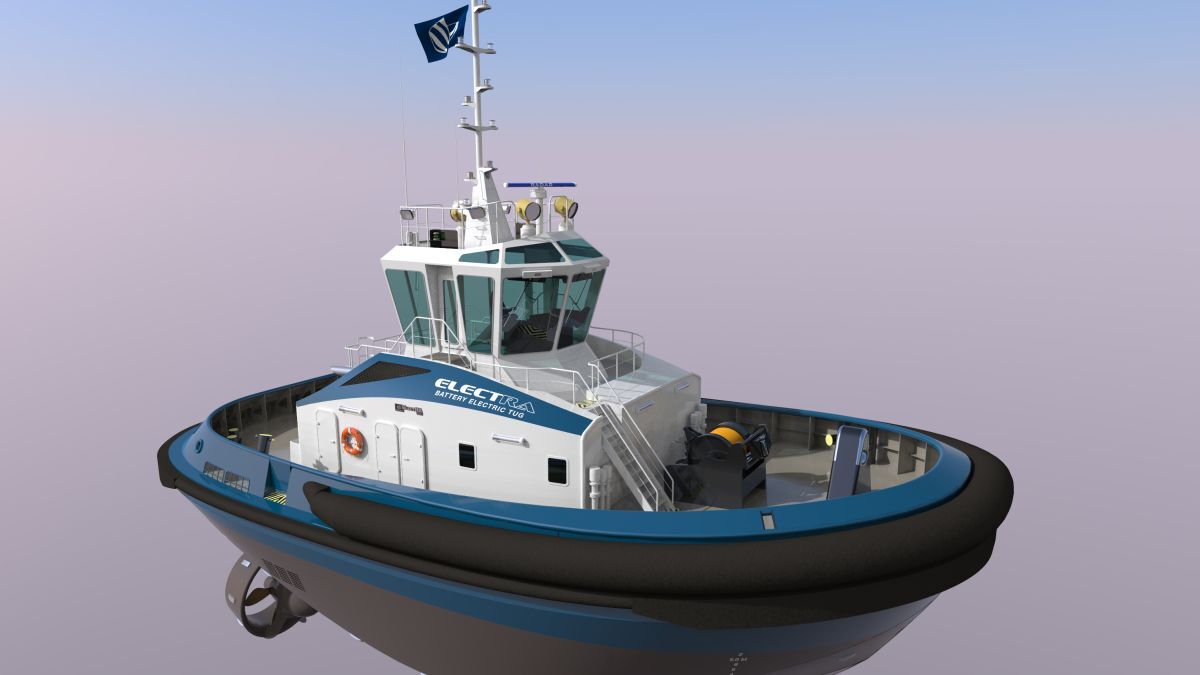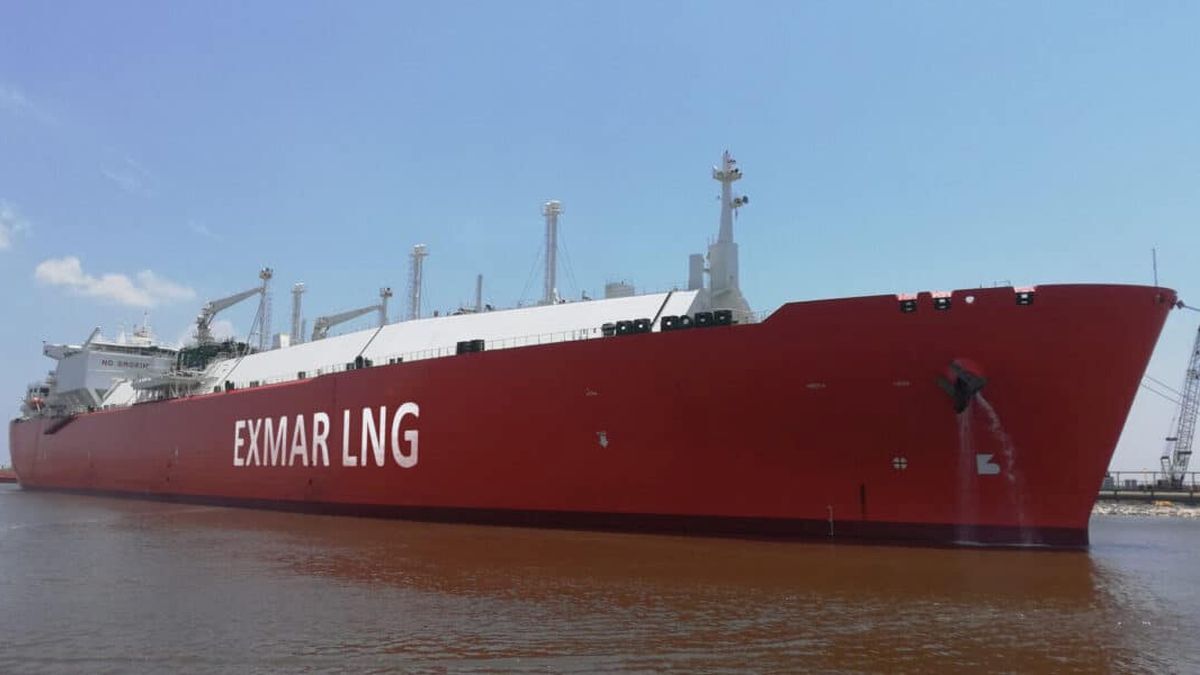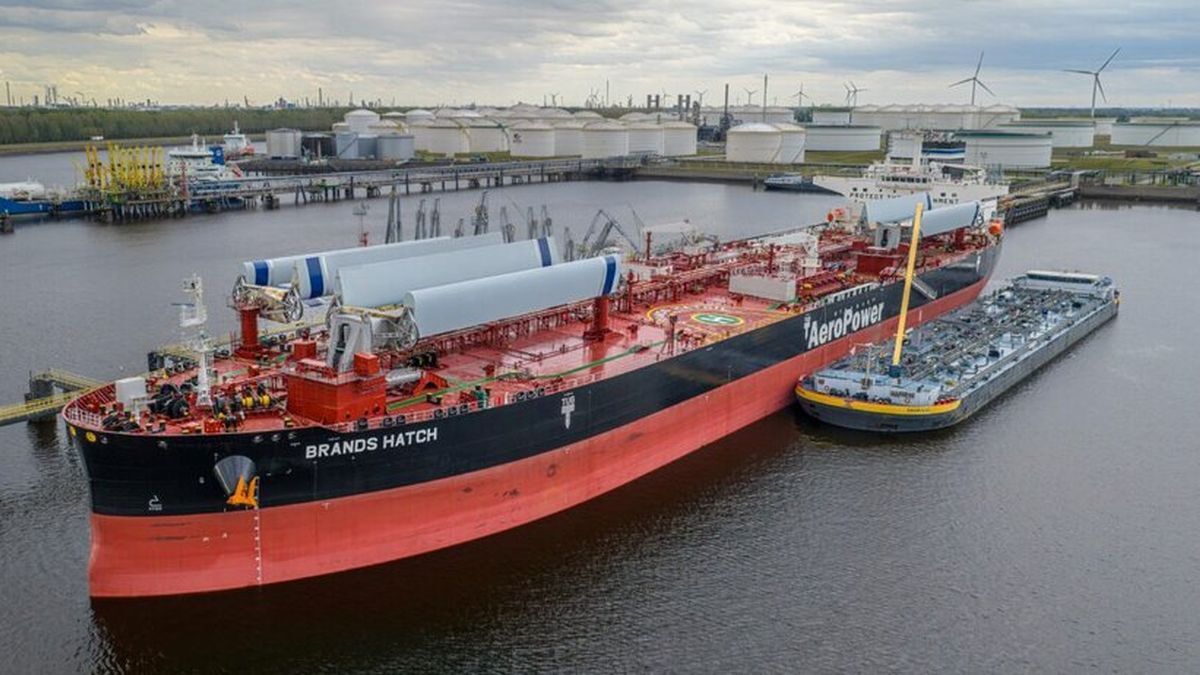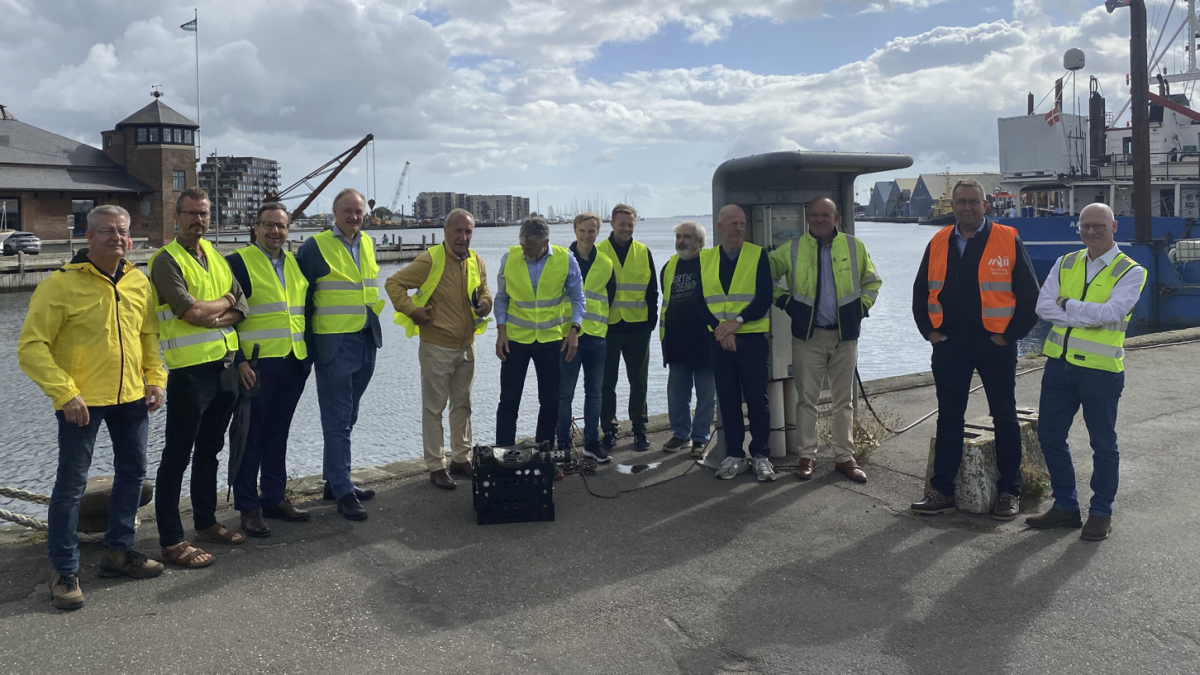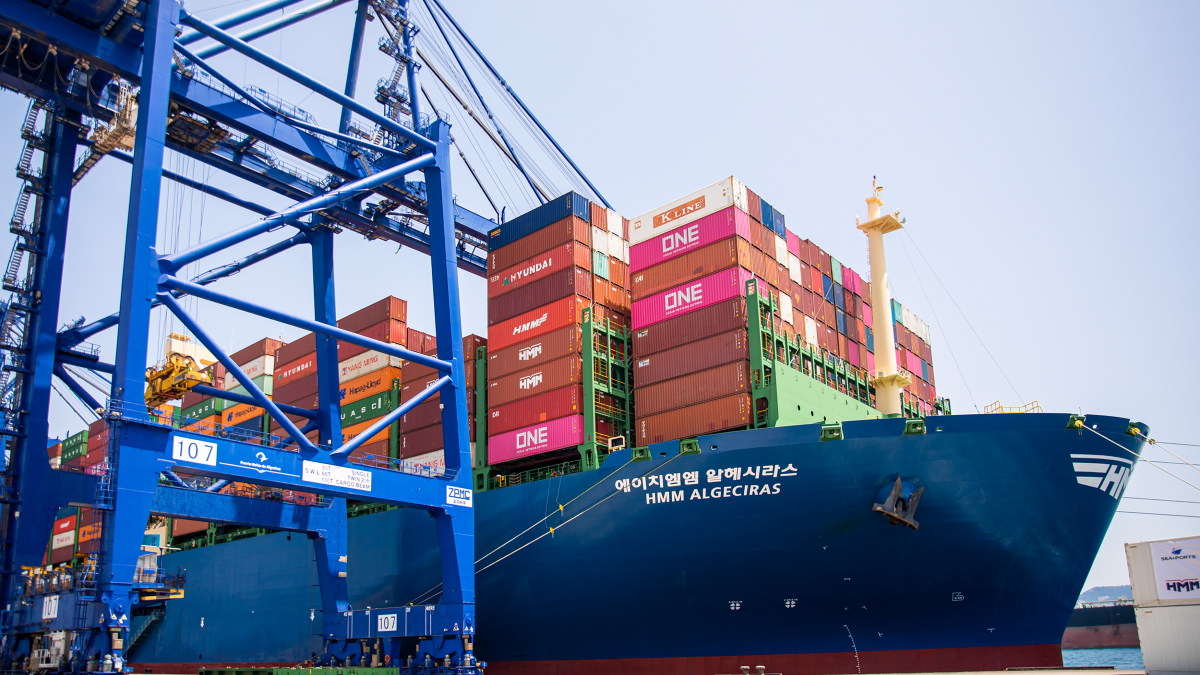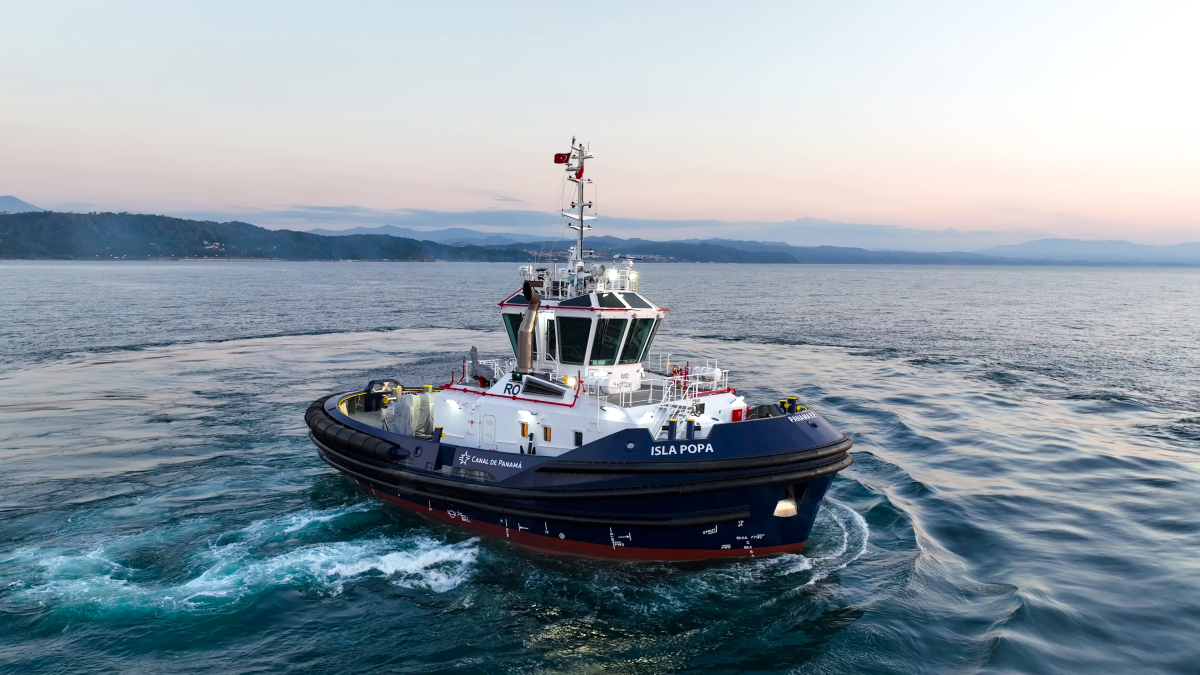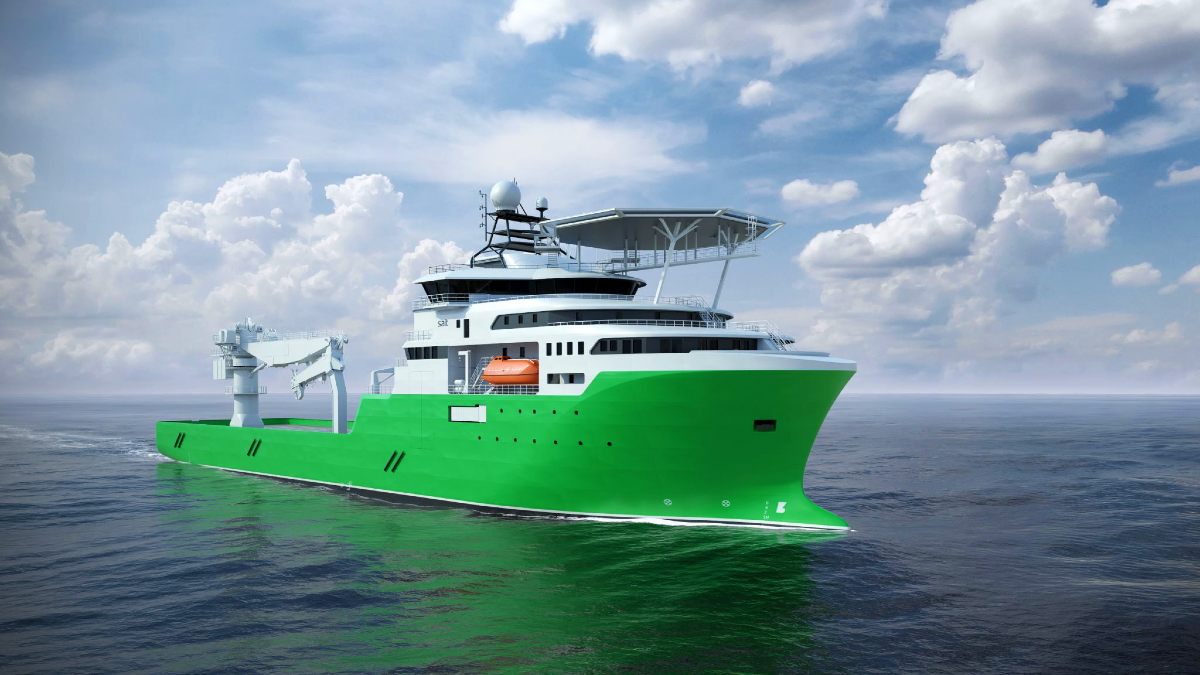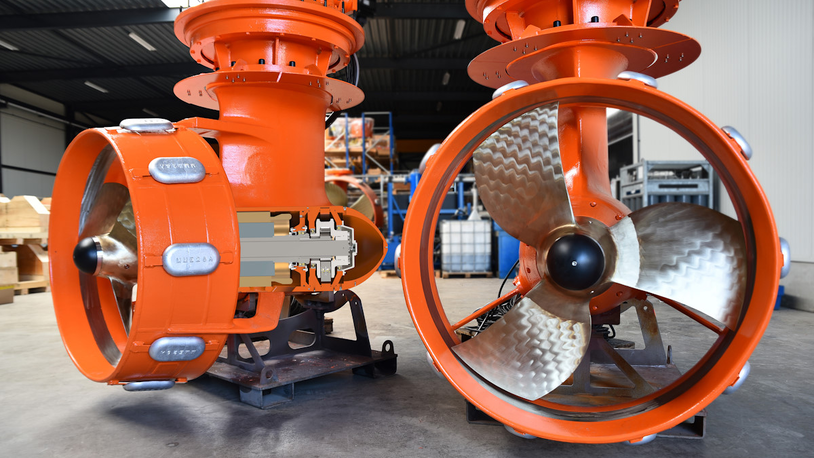Business Sectors
Events
Offshore Wind Webinar Week
Contents
Register to read more articles.
Why electric is the main solution for harbour tugboats
Tugs with batteries, onboard chargers and backup generator sets operate emissions-free on low-voltage AC power
Although alternative fuels, such as biofuels, hydrogen, methanol and ammonia are important for achieving decarbonisation targets, at present they have poor efficiency when evaluated on a well-to-wake basis.
The entire process, from fuel production to use on board ships, is energy intensive. Two to three times more electricity is required to produce these environmental fuels (e-fuels) due to electrolysis, carbon capture and synthesis processes. However, e-fuels are crucial for decarbonising deepsea operations and must be developed as a drop-in fuel. But Sanmar director of research and development and electrical systems Tamer Geckin says electric propulsion and energy storage is more effective for future tugs.
“Using electric power with batteries is the most efficient and easiest way for harbour tugboats and inland vessels to become green,” he says. This is why Sanmar Shipyards is increasing production of its all-electric tugboats, using Robert Allan Ltd’s ElectRA series of designs.
“At Sanmar, we also believe as part of our pioneering role, we have to make the industry more informed about battery storage systems, and to have a common understanding of the new terms,” explains Mr Geckin.
For example, instead of using fuel tank high and low levels, with battery storage systems there is the state of charge. And instead of fuel consumption, there is the percentage depth of discharge.
“We also have to keep in mind the battery storage systems still have limited energy storage capability compared with traditional fuels and most battery-powered vessels have over-estimated battery capacity,” says Mr Geckin.
“We have to calculate and consider the required battery capacity according to real values and cycling times – the total time from the beginning to end of a process.”
Although tugboat operations are not from set A to B, their operations are predictable. Traditional tugboats are equipped with high-power diesel engines to reach a certain amount of bollard pull capacity with full power needed for less than 1% of their operations, while most of the time engines are on low load.
“Also, for long periods of time tugboats are on standby or in idling mode,” says Mr Geckin. “To keep the engines warm and ready for work, they are kept running during this period. But, the electric-powered ElectRAs do not have such energy loss during this period, increasing their green credentials even further.”
Sanmar, as both a tug owner and a builder, considers not only the operational performance of a tugboat, but also shore charging power flexibility.
“One of the main differences between ElectRAs and other all-electric tugboats is the charging power. ElectRAs only need low-voltage AC power thanks to their onboard chargers,” says Mr Geckin.
This gives ElectRAs the ability to accept wide voltage and frequency variations; it is easy to change the operation location as there is no need for special shore charging infrastructure; there is one service for all electric components, which means the propulsion power inverter, DC/DC converters and shore charging unit are all same brand with marine type and certificated; and there is a common onboard cooling system for the charger.
“We believe the backup generator sets are essential for safe operations and to extend the operation duration,” says Mr Geckin.
These gensets are needed to transit outside of the operating area, such as when the tugboat needs to dock for maintenance or annual inspections. “All-electric tugboats need to be towed if there is no chance to charge the tug’s batteries without special charging infrastructure.”
Backup generator sets on electric tugs enable unrestricted navigation and fire-fighting notations from class societies and for use in emergencies. “For the vast majority of time whole operations would be carried out in battery mode,” says Mr Geckin.
“Even though there are two backup generators on board, due to battery operation, electric tugs are 100% smokeless and noiseless. ElectRAs offer 100% carbon-free operations.”
Riviera Maritime Media’s TUGTECHNOLOGY returns 21-23 May 2023 in Rotterdam, the Netherlands. Use this link for further information and to register your interest
Related to this Story
Events
Offshore Wind Webinar Week
Maritime Decarbonisation, Europe: Conference, Awards & Exhibition 2025
Offshore Support Journal Conference, Americas 2025
© 2024 Riviera Maritime Media Ltd.


